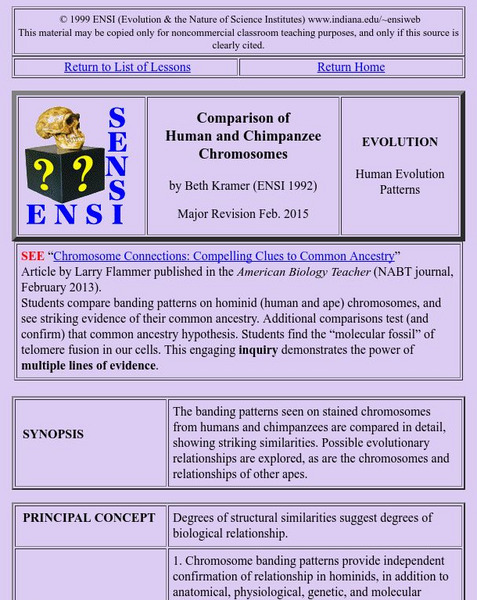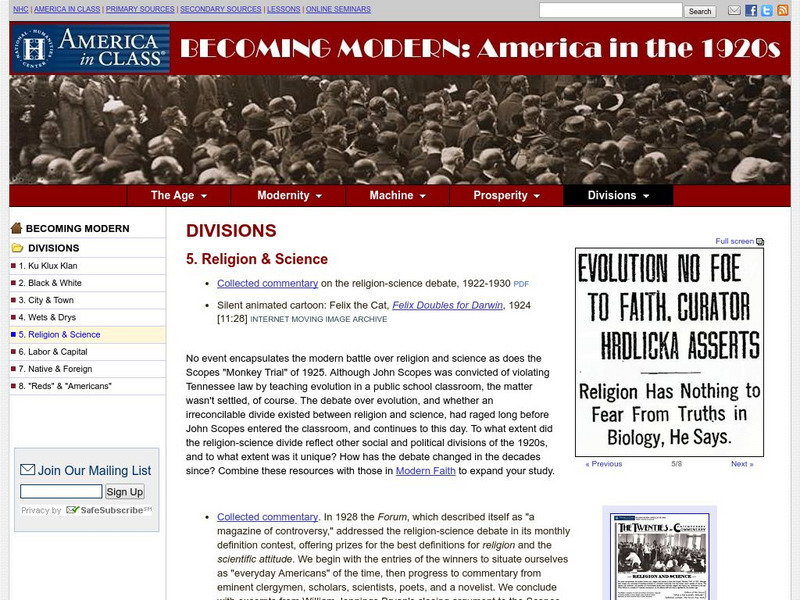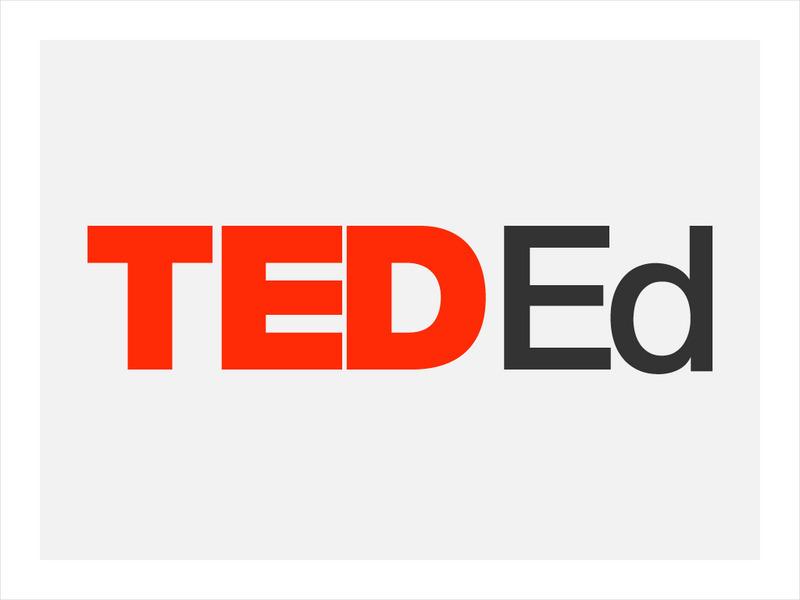Hi, what do you want to do?
Curated OER
Mother Nature's Laboratory
Students research how various plants and animals adapt over time to specific habitats and for specific purposes. Students produce a pictorial report on an example of an animal or plant's adaptation.
Curated OER
13 Ways to Tell Time Backwards
Young scholars explore different ways geological time can be measured: comparing the time dimensions for each method, the mechanisms of each method, and the materials used.
Curated OER
Why Don't Whales Have Legs?
Students are given a variety of materials and are asked to design a heat loss experiment that results in a reasonable explanation of "Why don't whales have legs?" students work with the theory of natural selection.
Concord Consortium
Concord Consortium: Stem Resources: Changes in the Environment
An activity to help students understand that as the environment changes, plants and animals must evolve to stay alive. Students watch as a mystery plants grow in a changing environment to see if they will evolve or go extinct.
American Museum of Natural History
American Museum of Natural History: Darwin Digital Library of Evolution
This American Museum of Natural History project is a valuable resource for anyone with an interest in studying evolution. They have created a digital library of Darwin's notes, publications, and manuscripts. The information is presented...
George Mason University
Chnm: Between the Wars: The Scopes Trial
Read the fascinating transcript of the proceedings in court when Clarence Darrow called William Jennings Bryan to the stand to expose the weakness in his argument against evolution in the famous Scopes trial.
Indiana University
Ensi: Comparison of Human: Chimpanzee Chromosomes Lesson
This is a great lesson plan that combines Karoytypes and evolution. Students will recognize that the chromosomes of chimpanzees and humans are remarkably similar, then correlate that to their evolutionary relationship.
Massachusetts Institute of Technology
Mit: Open Course Ware: Courses: Biology: Introductory Biology
College-level introductory biology course focusing on the application of the fundamental principles of human biology. Course topics include genetics, cell biology, molecular biology, disease (infectious agents, inherited diseases and...
National Humanities Center
National Humanities Center: America in Class: America in the 1920s: Religion & Science
The National Humanities Center presents collections of primary resources compatible with the Common Core State Standards - historical documents, literary texts, and works of art - thematically organized with notes and discussion...
TED Talks
Ted: Ted Ed: How Did Feathers Evolve?
To look at the evolution of modern bird feathers, we must start a long time ago, with the dinosaurs from whence they came. Carl Zimmer explores the stages of evolution and how even the reasons for feathers have evolved over millions of...
PBS
Pbs Learning Media: Tetrapod Limbs
This illustration from Evolution by Monroe W. Strickberger shows the remarkable similarities between the bones in the forelimbs of various tetrapods, all of whose limbs serve very different functions.
PBS
Pbs Learning Media: Shape of Trees: The Frustration Principle
This series of images shows the work of biologist Karl Niklas on the adaptations and evolution of plants. From The Evolutionary Biology of Plants.
PBS
Pbs Learning Media: Mammals Get Their Chance
In this video segment adapted from NOVA, animations of an asteroid hitting Earth are used to illustrate this widely accepted theory of dinosaur extinction and the resulting conditions that favored mammals.
PBS
Pbs Learning Media: Chris Schneider: Rethinking Conservation
In this interview filmed for Evolution: "Darwin's Dangerous Idea," biologist Chris Schneider discusses the relationship between conservation and speciation.
PBS
Pbs Learning Media: Darwin's Letters: Collecting Evidence
This group of letters is a sample of the extensive correspondence Darwin carried on with a wide group of friends and colleagues as he collected evidence to support his theory of evolution by natural selection. From Charles Darwin's...
PBS
Pbs Learning Media: Life's Grand Design
Are nature's complex forms evidence of "intelligent design"? In this Evolution essay, biologist Kenneth Miller explains how the processes of evolution account for complex structures such as the human eye.
PBS
Pbs Learning Media: Laetoli Footprints
This Evolution video segment describes how the famous track fossils known as the Laetoli footprints might have been formed and what they can reveal about the creatures who left them.
PBS
Pbs Learning Media: Sweaty T Shirts and Human Mate Choice
This video segment from Evolution: "Why Sex?" explores the "sweaty T-shirt experiment," which showed that humans may unconsciously be drawn toward a specific kind of genetic variation in a mate.
PBS
Pbs Learning Media: Animal Body Plans: Homeobox Genes
The homeobox genes that define the basic body plan of mice and fruit flies are illustrated in this graphic from The Human Evolution Coloring Book by Adrienne Zihlman. The accompanying article describes how these genes act as "molecular...
University of California
Ucmp: Life Has a History
This is a very good introduction to the role evolution plays in the development of biodiversity. These topics and extinction are explained with the use of colorful interactive pictures.
Story Behind the Science
Story Behind the Science: Alfred Russel Wallace [Pdf]
A detailed biography of Alfred Russel Wallace, known especially for his theoretical work on evolution, which was published prior to Charles Darwin's own theory. Questions are posed throughout about the nature of scientific research.
University of California
Ucmp: Evolution: Theory and Science
An introduction to Darwin's theory of evolution with hyperlinks to other topics on evolution, including a timeline of evolutionary thought.
TED Talks
Ted: Ted Ed: Evolution in a Big City
Video explains how mice, coyotes, and newts can show signs of evolution, even in a big city such as New York. [5:16] Includes a brief quiz and a list of additional resources to explore.
TED Talks
Ted: Ted Ed: Five Fingers of Evolution
Video discusses the concept of evolution and the five processes that can cause it to happen. [5:24] Includes a brief quiz and a list of additional resources to explore.


















